Summertime is often a trigger for individuals struggling with disordered eating patterns. Less clothing and barely-there bikinis can evoke anxiety and depression in those who suffer from maladaptive eating behaviors. We’re taking a more in-depth look at the societal movement toward body positivity. Jill Sena, MA, LAC, SEP, a primary therapist at Sierra Tucson, offers insight on what it means to heal from disordered eating patterns, and how healing precedes a body-positive attitude.
Q: How does healing from disordered eating help with body positivity?
JS: Residents engaged in our Eating Recovery Services learn to listen to their body in healthy ways. They become aware of what their body needs and start listening to internal cues around what their body wants. They discover the importance of connecting with their body and begin to experience different aspects of their body that have been shut down for so long due to trauma. Individuals learn to let go of body hatred and direct that anger in appropriate places. This allows for the possibility of a body-positive attitude and treating the body as a vessel for healing. Residents come to understand that the body has many messages to communicate once they are ready to listen to its cues.
Q: How do Sierra Tucson’s Eating Recovery Services help those struggling with disordered eating patterns to heal holistically?
JS: Sierra Tucson’s Eating Recovery Services address the importance of healing the whole person – mind, body, and spirit. We focus on teaching residents how to make healthy food choices and taking care of their body in a healthy way. Residents engage in several modalities including Somatic Experiencing® Therapy, EMDR, acupuncture, massage, dialectical behavior therapy (DBT), mindfulness, and other alternative treatment methods. Additionally, residents develop their own sense of spirituality.
Q: What does recovery from disordered eating look like?
JS: Healing from disordered eating includes no longer eating (or restricting) to soothe emotions. Residents learn to eat when they are hungry and get in touch with body cues. This is a process that usually starts with a meal plan; the resident gradually begins to listen to his or her internal body cues. Long-term recovery means making a commitment to recognize emotional hunger versus physical hunger; having a new relationship with food and using it to feed the body, not emotions; and dealing with emotions in a healthy and effective manner.
Q: What are some tools to help individuals practice self-compassion and self-forgiveness?
JS: People can work on self-compassion by observing and noticing their inner critic and exploring if this critic helps or hurts them. Most people heal in a loving environment and not when they are surrounded by constant criticism, which puts them in a fight-or-flight state. The brain does the same when we criticize ourselves. The body cannot relax and is on hyper-alert no matter if it’s external or internal criticism. We are all worthy of self-forgiveness because we are all imperfect. Learning to love oneself in various ways, every day, can change old neural pathways. It is a challenge, but it can happen a little bit at a time.
About Our Eating Recovery Services
Sierra Tucson’s Eating Recovery Services provide comprehensive treatment for individuals (18 years and over) struggling with disordered eating as a co-occurring condition. Residents benefit from our wide range of medical and clinical services that address disordered eating and simultaneously treat primary diagnoses such as depression, anxiety, trauma, chronic pain, or substance use disorder. For more information, call our Admissions Coordinators at (800) 842-4487.













